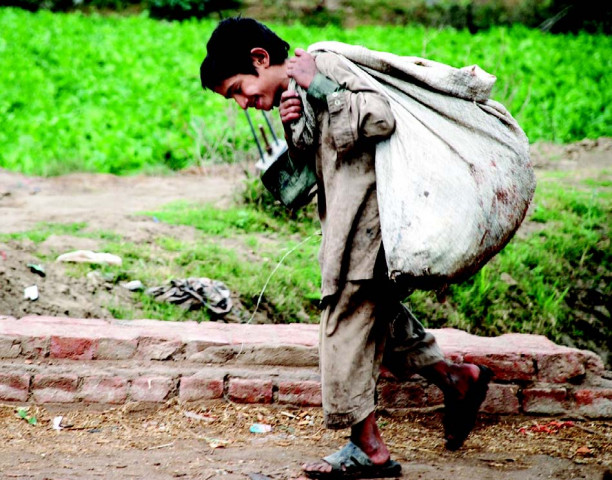The great hunger
K-P will only fulfil its own food needs when government devises a food security strategy — and that is a distant dream

The National Nutrition Survey at the end of 2013 found that 60 per cent of Pakistan’s total population is facing food insecurity. PHOTO: ISRARUL HAQ/ FILE
The Oxfam report is a snapshot and short on detail, but the corroborative evidence is at hand. The National Nutrition Survey at the end of 2013 found that 60 per cent of Pakistan’s total population is facing food insecurity, and that within households that were food insecure, 50 per cent of women and children were malnourished. Children were found to be stunted in height and below their target weights for age. Malnutrition is linked to 35 per cent of deaths of children under five years of age. Of note is that the World Health Organisation classifies a national average of 15 per cent as an ‘emergency’ — not an emergency that appears in our headlines or unduly troubles the government, apparently. Of particular concern is the deteriorating situation in Khyber-Pakhtunkhwa, which only produces 11 per cent of its food requirements, yet has large tracts of arable land lying fallow. The province is prone to natural disasters. It will only fulfil its own food needs when the government devises a food security strategy — and that is a distant dream.
Published in The Express Tribune, January 18th, 2014.
Like Opinion & Editorial on Facebook, follow @ETOpEd on Twitter to receive all updates on all our daily pieces.















COMMENTS
Comments are moderated and generally will be posted if they are on-topic and not abusive.
For more information, please see our Comments FAQ